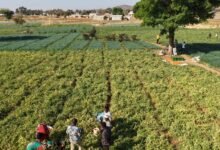Legal aid and the pursuit of social justice in Ghana
While every Ghanaian is entitled to fair hearing, not everyone can afford a lawyer.
Legal aid is the provision of assistance to people who are unable to afford legal representation and access to the court system. Legal aid is regarded as fundamental in providing access to justice by ensuring equality before the law, the right to counsel and the right to a fair trial.
It is important to distinguish between a legal aid and a lawyer. The only difference between these two is who foots their bill. The lawyer is a private legal practitioner who you pay for his services, whilst the legal aid/public defendant is a legal practitioner who is paid by the state and is assigned to persons who cannot afford the services of a private legal practitioner.
However, both attorneys, once they have the case, owe their clients the same duty of ardent advocacy on their behalf. What is normal and what isn’t will depend on the facts and circumstances of the case. Usually, private attorneys can devote more attention to “customer service.”
ROLE OF THE LEGAL AID COMMISSION
Ghana’s Legal Aid Scheme(LAS), now Legal Aid Commission (LAC), was created in 1997 toensure that all citizens have equal access to justice and equal treatment before the law.
Supported by the Government of Ghana, its goal is to achieve a just and equitable society by providing nationwide quality legal aid. However, it is vital to the fight against corruption, where legal aid can be offered to citizens wishing to pursue cases of corruption.
Encouraging citizens to file lawsuits against public officials in cases of embezzlement of funds, for example, can help to reduce the size of the problem.
The functions of the Legal AidCommission, as stipulated in the LAC Act 2018, are to provide legal aid to an indigent through the representation of clients in courts; utilization of Alternative Dispute Resolution mechanisms through Legal Advice and Education; and also to provide legal aid to a person who has reasonable grounds to take, defend, prosecute, or be a party to proceedings related to the constitution in accordance with clause 1 of Article 294 of the constitution.
SOURCES OF FUNDING?
The Legal Aid Commission obtains its funding from monies approved by Parliament, donations and gifts.
In 2021, a total ofGHC15.658,160.00,comprising GHC13.978,596.00 for Compensation, GHC529,564.00 for Goods and Services and GHC1,150,000.00for Capital Expenditure (CapEx), was allocated to the Commission.
It is important to indicate that the allocation of GHC529,564.00 for Goods and Services is woefully inadequate comparing it to the 2020 allocation of GH&2,000,000.00. This shows a downward adjustment of 73.5%.
Nevertheless, the former Speaker of Parliament, Professor Aaron Michael Oquaye, speaking at the 16th edition of Re-Akoto Memorial Lectures on ‘The legacy of Baffour Osei Akoto: A Family Man, a Chief and Statesman’, charged the government to expand the parameters of Pro-bono cases as lawyers took principled stance in cases.
WHO IS ENTITLED TO LEGAL AID?
Recent survey conducted by the office of the Attorney General has highlighted that few people know about their constitutional right to legal aid. The findings however suggest an improvement in the public knowledge of the existence and operation of the Legal Aid Commission.
In the 2012 baseline survey of the justice sector, 79% of Ghanaians did not know of the existence of the Legal Aid Commission or the services it provides.
This improvement in public knowledge of the existence and operation of the Commission could be attributed to key reforms undertaken after the baseline survey.
Highest on the list of barriers to the accessibility of legal aid services provided by the Legal Aid Commission included lack of acknowledgement of the operations of the Commission, delay in proceedings, lack of awareness of the existence of the Commission and location.
The eligibility of a person depends on a number of factors, including the person’s source of income; the nature of the case; the costs of the legal representation and such special circumstances regarding the case; likelihood of any hardships to be suffered by the person if legal aid is not granted; and also the public interest impact of the case
HOW CAN ONE APPLY FOR LEGAL AID?
It is believed that persons who apply for legal aid are the most vulnerable in society. Ordinarily, legal aid should be their last and only, resort to justice. Persons can apply for legal aid, from the Legal Aid Commission from by several methods as prescribed by the Commission.
These methods include walking into any of the legal Aid Commission offices nearby to fill a Legal Aid Application Form – Form A; filling an online application by visiting the website (www.lac go.gh) of the Commission; referral by a third-party institution to the Commission; and referral by a Court.
HOW MANY PEOPLE HAS THE LEGAL AID COMMISSION BEEN ABLE TO HELP?
The Legal Aid Commission, as of 2020, had received 2,456 court cases and completed 1,115 cases in the various courts. These cases were both civil and criminal and included Marital/Matrimonial, Maintenance, Divorce, Manslaughter, Murder, Rape and Defilement.
The Commission recently obtained justice for Mr. George Agbeshie, who was wrongly accused of a crime he claimed to have no knowledge of. Mr. Agbeshiewas tried and sentenced to 25 years in prison with hard labour on May 24, 2010.
He later filed an appeal at the High Court on October 24, 2016but the appeal was dismissed by the Accra High Court, reaffirming the earlier decision of the circuit court.
Some of the notable cases the commission has been involved in are: The Republic vs. Kwame Ameyome, a taxi driver who was assisted by a lawyer of the commission to gain his freedom after serving 12 years in the maximum-security prison at Nsawam for wrongfully being charged with robbery.
In the case of the Republic vs Charles Twumasi: Mr. CharlesTwumasi, an accounts clerk, was assisted to gain his freedom after being sentenced to 15 years’ imprisonment for allegedly defiling a 12-year-old pupil and impregnating her.
Also, in the Republic vs. Kwame Dorleagbenu, Mr. Dorleagbenu, a39-year-old farmer and Rastafarian accused of being part of a gang rape of a 17-year-old girl, was acquitted and discharged by the Accra High Court.
BY JESSEL LARTEY THERSON-COFIE






